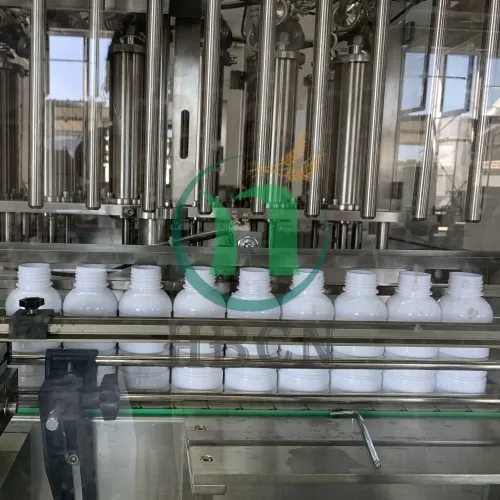
Nov . 16, 2024 18:37 Back to list
sodium chlorate herbicide
Sodium Chlorate Herbicide An Overview of Its Uses, Benefits, and Environmental Concerns
Sodium chlorate is a powerful herbicide renowned for its effectiveness in controlling a variety of unwanted vegetation. As a non-selective herbicide, it is capable of eliminating broadleaf weeds, grasses, and many perennial plants. In this article, we will delve into the uses, benefits, and environmental concerns associated with sodium chlorate to shed light on this chemical compound's role in agriculture and land management.
Uses of Sodium Chlorate
Sodium chlorate (NaClO3) is primarily employed in agricultural practices for weed control. Farmers and land managers utilize it to manage invasive species and maintain the integrity of crops. Sodium chlorate works by disrupting the photosynthesis process in plants, leading to their eventual death. This herbicide is often applied to non-crop areas such as roadsides, railways, and industrial sites where vegetation management is necessary to prevent interference with infrastructure.
In addition to agriculture, sodium chlorate finds applications in forestry and horticulture. It is utilized for clearing brush and managing tree growth in forested areas, facilitating easier access to the land for logging or planting. Moreover, it serves as a tool for ornamental plant management, helping to maintain gardens and landscaped areas free from unwanted weeds.
Benefits of Sodium Chlorate
One of the primary advantages of sodium chlorate as a herbicide is its rapid action. Users often observe visible results within a few days of application, which contributes to its appeal for land management. Its effectiveness against a wide range of plant species also makes it a versatile tool for those involved in agriculture and horticulture.
Furthermore, sodium chlorate is relatively inexpensive compared to other herbicides, making it an economical choice for farmers seeking effective weed control. It can be applied in various formulations, including liquid sprays and granules, allowing for flexibility in its use based on the specific needs of a property.
sodium chlorate herbicide

Environmental Concerns
Despite its advantages, the use of sodium chlorate is not without concerns. One of the most significant issues is its potential impact on non-target species. As a non-selective herbicide, sodium chlorate does not discriminate between desired plants and invasive weeds, which means that it can harm beneficial flora and fauna in the vicinity. This has raised concerns among environmentalists and conservationists, as the unintended consequences of its application can disrupt local ecosystems.
Moreover, sodium chlorate can pose risks to water quality. If runoff occurs during rainfall or irrigation, it can contaminate water bodies, leading to adverse effects on aquatic life. The compound can also degrade into chlorate ions, which are toxic to fish and other aquatic organisms, raising alarms about its broader ecological impacts.
There are also health concerns associated with sodium chlorate exposure. It can be harmful if ingested, inhaled, or absorbed through the skin. Symptoms of exposure may include respiratory irritation, skin burns, or gastrointestinal distress. Appropriate safety measures must be taken during application to protect agricultural workers and those living in nearby areas.
Conclusion
Sodium chlorate serves as a powerful herbicide with a range of applications in agriculture, forestry, and horticulture. Its rapid action and cost-effectiveness make it a popular choice among land managers seeking to control unwanted vegetation. However, its non-selective nature and potential environmental and health risks warrant careful consideration.
To ensure responsible use, it is crucial for users to follow recommended application guidelines and safety measures. Additionally, ongoing research and discussion surrounding the environmental and health impacts of sodium chlorate are essential for developing sustainable agricultural practices. As we navigate the delicate balance between effective weed control and environmental stewardship, a deeper understanding of sodium chlorate can help shape future land management strategies that benefit both agricultural productivity and ecological integrity.
-
Famoxadone Fungicide: Prevent & Cure Plant Diseases Effectively
NewsAug.26,2025
-
Topramezone Herbicide: Selective & Powerful Weed Control for Corn
NewsAug.24,2025
-
Powerful Fungicide for Optimal Crop Health & Yield Protection
NewsAug.23,2025
-
Azoxystrobin Fungicide: Advanced Crop Protection Solutions
NewsAug.22,2025
-
Willowood Imidacloprid: Best Broad-Spectrum Insecticide Solution
NewsAug.22,2025
-
Atrazine Herbicide: Selective & Effective Weed Control for Sale
NewsAug.21,2025
